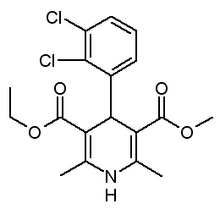Grapefruit juice gives drug an added punch
Tangy grapefruit juice may pack an unwanted punch. Canadian researchers have discovered that an experimental antihypertensive drug, if taken with grapefruit juice, can cause a rash of side effects, including rapid heart rate, facial flushing and dizziness.
"This is the first example of a pharmacokinetic interaction between a citrus juice and a drug," study coauthor David G. Bailey told SCIENCE NEWS. The results underscore the potential for hazardous effects when people consume certain foods with specific drugs, he says.
The new finding has its roots in an earlier study at the University of Western Ontario in London, in which Bailey and his colleagues attempted to determine the interactions between alcohol and an antihypertensive drug called felodipine, used in some European countries and now in clinical testing in the United States and Canada. Bailey recalls using grapefruit juice to mask the slightly sweet taste of alcohol. To their surprise, the researchers found that blood levels of felodipine among the volunteers -- even those who drank grapefruit juice without alcohol -- soared well beyond the expected values.
At first, the team suspected a problem with the study's methodology. But when painstaking inquiry ruled out other explanations, they decided to investigate the grapefruit juice itself.
They started by selecting six men, aged 48 to 62, with mild hypertension. Each volunteer took 5 milligrams of felodipine followed by water, grapefruit juice or orange juice. After drawing blood samples and recording blood pressure and heart rate, the scientists repeated the process on later days, switching the drinks so that each person eventually took the drug with each of the three liquids.
When the men took the felodipine pill and drank grapefruit juice, their blood levels of the drug reached about three times the amounts measured when they took the same dose with water or orange juice. On average, grapefruit juice doubled the drug's effect on blood pressure (which decreased) and heart rate (which increase), Bailey says. Not surprisingly, grapefruit drinkers reported more cardiovascular symptoms such as dizziness, facial flushing, headache or rapid heartbeat after taking felodipine, the team notes in the Feb. 2 LANCET.
Bailey speculates that grapefruit juice, but not orange juice, may contain a substance that inhibits an enzyme that breaks down felodipine, thereby leaving more of the drug circulating in the bloodstream. Although the researchers used super-concentrated fruit juices in this trial, Bailey thinks felodipine taken with off-the-shelf grapefruit juice could yield noticeable cardiovascular symptoms.
The felodipine finding raises questions about whether other high blood pressure drugs interact with grapefruit juice or other foods. When the researchers went on to study nifedipine, a U.S.-approved hypertension drug, they found that the concentrated grapefruit juice increased the drug's blood concentrations, but only slightly. Among the six healthy volunteers, only one showed an adverse reaction, reporting a mild headache after treatment.
COPYRIGHT 1991 Science Service, Inc.
COPYRIGHT 2004 Gale Group



